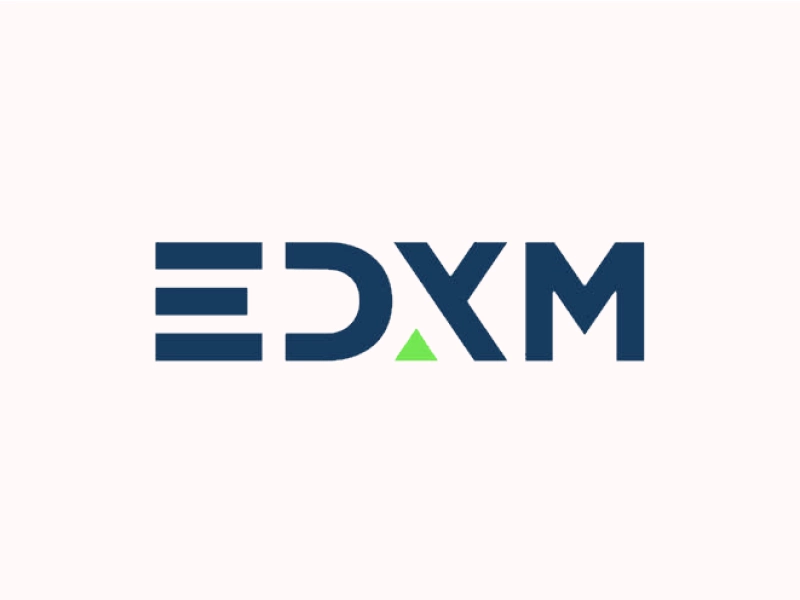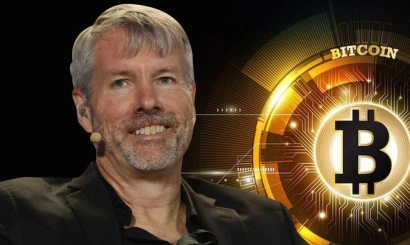Entry for big capital. How the new EDX cryptocurrency exchange works
Fidelity and Charles Schwab-backed EDX exchange launch could attract big investors to the cryptocurrency market
Here's what you need to know about the new Fidelity and Charles Schwab-backed platform for institutional investors
A new crypto exchange has launched in the U.S., backed by well-known players in traditional finance such as Citadel Securities, Fidelity, and Charles Schwab. The development could change the digital asset landscape amid increased U.S. attention to the sector.
According to the press release, EDX was launched to "meet the needs of the world's largest and most advanced financial institutions," many of which remain interested in cryptocurrencies but are skeptical of existing venues, including because of the regulatory uncertainty they now find themselves in. The launch of the site coincided with a surge in bitcoin following news of an application for a bitcoin ETF by BlackRock.
EDX Markets, an institutional-only exchange for institutional investors, was first announced in September 2022. In addition to Bitcoin, the exchange allows trading in three other cryptocurrencies - Ethereum (ETH), Litecoin (LTC), and Bitcoin Cash (BCH). None of them were equated with securities in the sensational lawsuits from the SEC against major cryptocurrency exchanges Binance and Coinbase.
"Fateful Moment. What the SEC lawsuits will do to the global crypto market
Unlike existing crypto platforms, EDX offers a so-called non-custodial model, which means it will not store customers' digital assets during trading. Instead, EDX works with a third-party custodian. According to EDX Markets CEO Jamil Nazarali, regulators' expectation that crypto exchanges should be separated from broker-dealer functions, similar to the structure of traditional financial markets, will create opportunities for EDX.
"Cryptocurrencies will always be afloat, but in order for them to develop as an asset class, they need to adopt the rules and investor protections that exist in traditional finance," Nazarali explained in a commentary for Bloomberg, adding that investor interest "opens up even more space" for the exchange.
The first capital to develop the exchange came from venture capital firms Paradigm, Sequoia Capital, and Virtu Financial. By the time of launch, EDX had raised additional funding from new investors, including Miami International Holdings, GTS, GSR Markets, and HRT Technology. At the end of the year, the company plans to launch its own EDX Clearing service for trades on the exchange.
Sequoia's portfolio includes other major crypto services. The company has invested, for example, in projects such as Filecoiln and LayerZero. Paradigm focuses exclusively on the crypto market and has supported dozens of blockchain startups, including Uniswap, OpenSea, Synthetix, Starkware, Phantom, Optimism, dYdX, Blur, and others
Traditional Market Practices
"We intentionally built our business model in a way that avoids the problems that other exchanges are facing right now," Nazarali told Fortune. For EDX, he said, this means "recognizing innovation in the cryptocurrency space," but also adhering to a number of practices used in traditional finance. EDX customers will still be able to trade the four cryptocurrencies almost around the clock, but the site will separate the functions of broker, dealer, and exchange.
Many potential crypto investors are still interested in this area but are wary of the inherent volatility of the crypto market. Taking its cue from the traditional stock market, EDX wants to attract these risk-averse customers. The exchange is aimed primarily at large investors and those institutions that are discouraged by the regulatory uncertainty and instability in the industry, highlighted by a string of bankruptcies of major players in 2022. Nazarali said the company is already a client of one of its investors, Citadel. Citadel had $62 billion in assets under management as of the end of 2022.
Instead of retail investors trading cryptocurrencies directly through the EDX platform, as other exchanges do, they will interact with intermediaries. A similar approach is taken, for example, in stock trading on the New York Stock Exchange (NYSE). The reliability of such intermediaries is also an argument for potential clients. "It's not like someone trading through a reliable intermediary will lose a hard drive with $200 million worth of cryptocurrency keys and then spend years looking for it in a landfill," Nazarali says, recalling that such cases have actually happened.
The site will also give customers access to better prices through retail-only quote deals. Since institutional traders often buy an asset in large quantities, their transactions often lead to an increase in the price of such an asset, which leads to losses for market makers. To minimize this, marketplaces can impose inflated commissions, which will be greatly felt by retail traders who trade in much smaller volumes. By isolating retail trading, EDX can offer clients better prices for small trades.
The strategy of combining aspects of cryptocurrencies and traditional finance could make companies like EDX more competitive, Brett Harrison, founder, and CEO of Architect and former president of FTX US, the U.S. arm of the FTX crypto exchange that went bankrupt last November, said Tuesday on Bloomberg TV. He believes the emergence of such hybrid exchange models in the future will allow them to compete with traditional exchanges such as Nasdaq or CME.
In his view, the launch of such an exchange also lends legitimacy to cryptocurrencies in general. Along with last week's application for a bitcoin ETF by BlackRock, the EDX's support from prominent players shows that cryptocurrencies are still taken seriously by some of the world's largest companies.
- IMF begins development of global CBDC infrastructure
- Crypto-detective raised $1 million from subscribers in 2 days for legal expenses
- BlackRock will launch a bitcoin ETF. How it will affect the cryptocurrency price
- FT: Crypto.com hid its own trades on the exchange
- OKX cryptocurrency exchange imposed restrictions on Russians
- Experts warned of hackers selling cryptocurrency theft software
- Deutsche Bank applied for a cryptocurrency license






